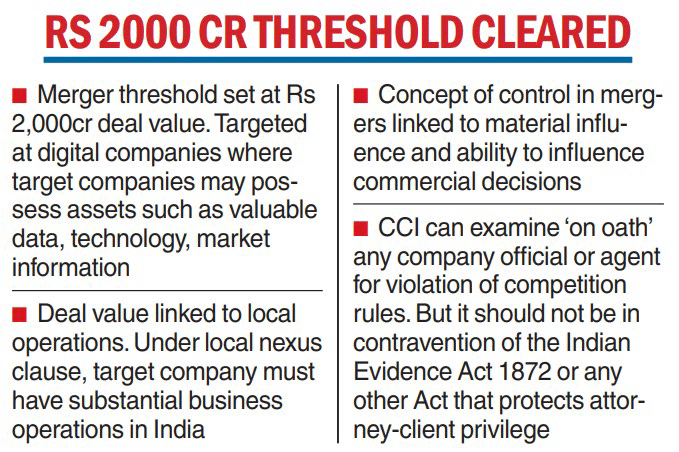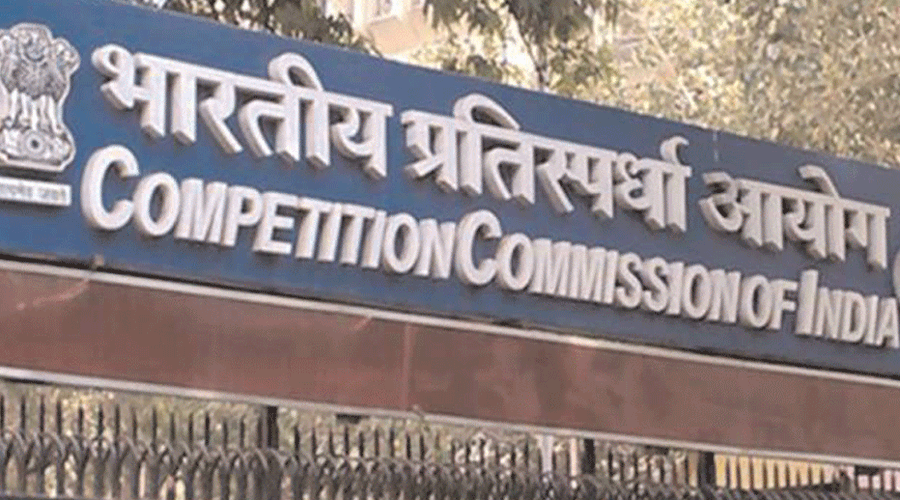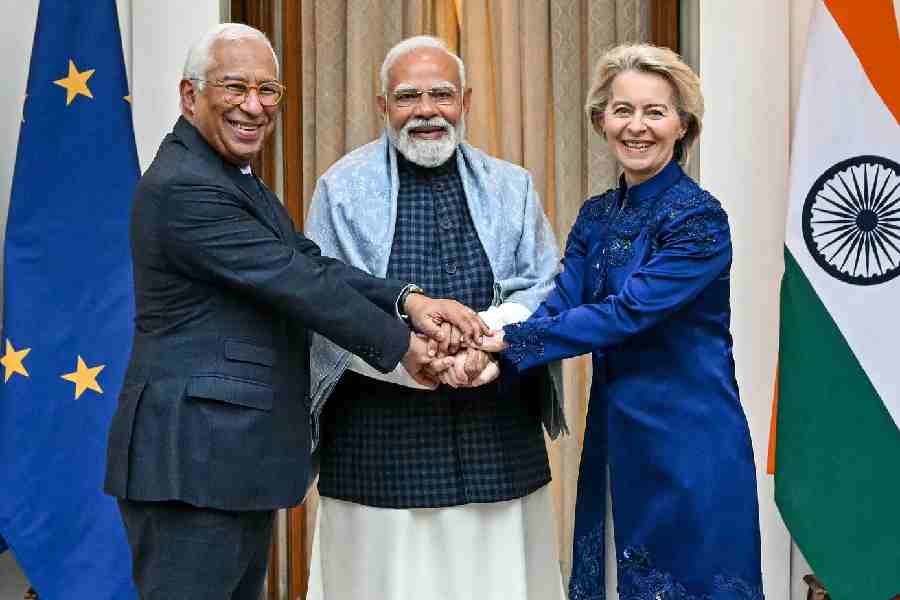The Parliamentary Standing Committee on Finance has approved a new litmus test for vetting mergers under the competition law: a Rs 2000-crore deal value threshold, overriding strident objections from industry. But it sandbagged the proposal with certain riders to ensure transactions aren’t smothered by an onerous merger control mechanism.
The committee, headed by Jayant Sinha, tabled its nearly 60-page report in the Lok Sabha on Tuesday.
The report said the new competition law should clearly spell out how the deal value ought to be calculated – including every valuable consideration whether direct or indirect.
The bill seeks to amend the Competition Act 2002 to ensure that M&As involving global tech giants and potentially having an “appreciable” effect on Indian markets don’t escape the country’s anti-trust scrutiny. The proposal was in line with a global realisation among antitrust watchdogs that the current twin criteria — asset and turnover – are insufficient to address the market impact of M&A deals between high-tech and digital firms.
The contentious “size of transaction” clause was wormed into the legislative amendment in order to cover merger combinations involving entities in the digital space where enterprises being acquired have minimal assets and turnover but have huge potential in terms of valuable data, technologies and market information. The argument adduced by the government for including this clause was that the Austrian and German competition authorities had introduced similar transaction value thresholds.
The Competition (Amendment) Bill 2022 was lobbed to the parliamentary committee in August. The MPs panel saw some merit in the industry’s argument that a blanket application of a transaction value threshold across the industrial landscape would make it unreasonably burdensome.
The provision relating to the deal value threshold had linked it to a local nexus criterion – which means that the target company would need to have “substantial business operations in India.” Industry had said this expression on local nexus was not clearly defined and therefore demanded a detailed guidance note relating to the sectors where the deal value threshold would apply, and how local nexus would be established.
Industry wanted to know whether the value of a transaction would apply to only Indian operations or the overall global operations, if the entity had such a wide presence.
The parliamentary panel said the local nexus condition “should be declared in the Act itself…to ensure predictability and certainty.”
The value of the transaction should include every valuable consideration whether direct or indirect, or deferred for any acquisition, merger or amalgamation and ought to be specified in the regulations that underlie the legislation.
Industry argued that it is very difficult to define transaction value in the modern, deal-making environment because there are often “elements of consideration paid through shares or earn-out payments, contingent consideration, (and) ancillary/side deal payments.”
What is control?
The other big beef over the bill was with regard to definition of control because it had tagged on the concept of material influence.
The bill had said: “Control means the ability to exercise material influence…over the management or affairs or strategic commercial decisions” by one or more enterprises, either jointly or singly, over another enterprise or group.”
Industry had argued that the introduction of the material influence standard would still keep the definition of “control” vague and open to interpretation.
They also argued that the bill did not explicitly set out parameters to determine how material influence was being exercised over an entity i.e. through shareholding, board representation, special rights, status and expertise of the person, or commercial/financial arrangements.
The committee said that the CCI had been using the material influence standard to determine control over the past few years. It felt that material influence was now a settled standard and should be explicitly defined. It, therefore, suggested a modification of clause 6(C) of the bill to state: “Control means the ability to exercise material influence, as may be specified by Regulations, in any manner whatsoever, over the management or affairs or strategic commercial decisions.”
Procedural timelines
The amendment bill had proposed to reduce the timelines for CCI decision on application for approval of merger combinations from 210 to 150 days. At the same time, the timeline for a prima facie opinion ought to be cut from 30 to 20 days.
The committee, however, felt that the shortened timelines would put an unnecessary burden on an understaffed commission. It, therefore, concurred with the CCI and the stakeholders that these timelines should be left unchanged.
Another contentious proposal in the bill was to empower the director general of the CCI to “examine on oath” any officer or agent of the company under investigation for violation of competition law. Industry had argued that the scope of this provision was too wide and that it should not cover legal advisors as this would amount to a breach of attorney-client privilege.
They had argued that this would violate the provisions of the Evidence Act which protects professional communication between legal advisor and the client.
The committee agreed that this would violate the Evidence Act as well as the Bar Council of India Rules. It said the “clause should specify with clarity that nothing in this section shall be in contravention of the Indian Evidence Act 1872 or any other Act that protects attorney-client privilege.”
The panel also recommended various changes to a bill to amend the competition law, including bringing cartels under the scope of settlements as a “pragmatic recourse”.











